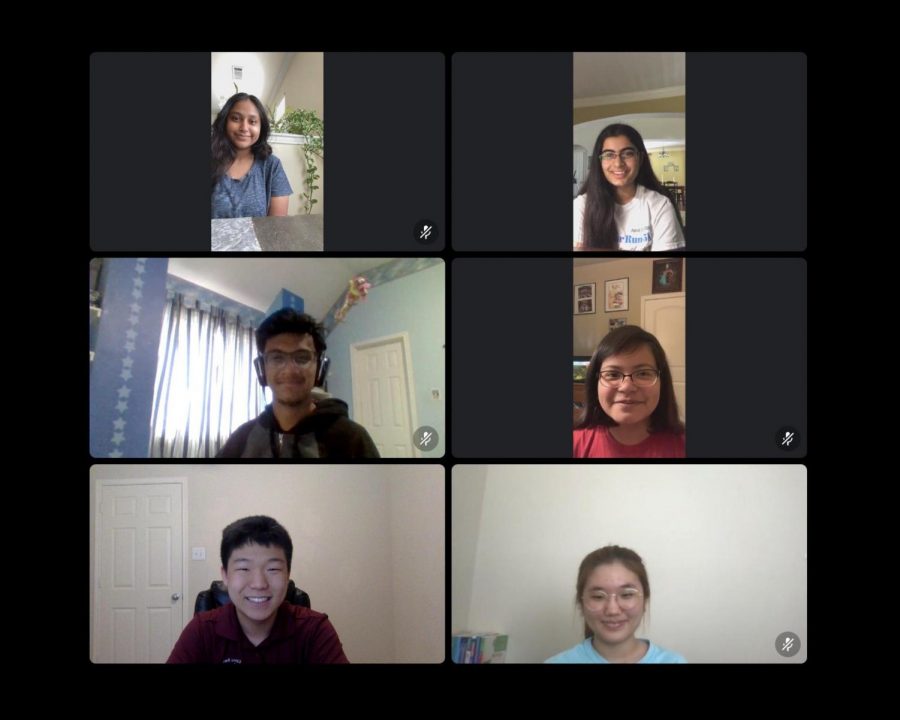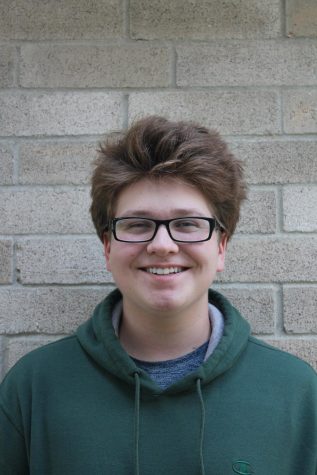Verbal Victory
Speech And Debate Teams Take Home UIL, Tournament Wins
The Extemp speech team holds a meeting over Discord. From left to right, top to bottom: junior Anusha Bhuiyan, sophomore Maitreyi Dighe, freshman Rishabh Choudhury, freshman Kayla Robles, junior Seth Choi, and freshman YuJin Cha.
April 10, 2021
Junior Anabelle Du and freshman YuJin Cha will advance to the UIL Regional Competition from April 16 to 17 after placing first in the Prose and and third in the Extemporaneous Informative Speaking events, respectively, at the UIL District Competition from March 23 to 24.
In the Extemporaneous Informative Speaking event, students choose from three different prompts that each discuss a current hot-topic issue, whether domestic or international. Competitors get 30 minutes to develop a speech no longer than seven minutes on their chosen prompt, then must present their speech to the judge from memory.
“I think that kind of pressure really is somehow fun,” Cha said. “It benefits us in a real way, not only in academics in terms of helping us organize our essays, but also in general social life, like coming up with sentences when you’re not really ready for a presentation. You can really learn to articulate your thoughts to the audience in a more natural manner.”
The event usually lasts two to four rounds, depending on how many students are competing. For each round, competitors get presented a new set of prompts and must make a new speech.
“The hard thing is you have to make sure that you’re not the only one understanding what you’re talking about, but you have to deliver that topic and convince the judge that it’s worth learning about,” Cha said. “At my first tournament, I only gave a three minute speech. It was really terrible and I couldn’t give my thoughts to the judge. I learned that it’s not just about presenting your thoughts in an organized manner, but making sure the judge is following you and gaining a new perspective to what you’re talking about. It’s about making sure what you say in those seven minutes leaves an impact on the judge.”
The prose event instead focuses more on storytelling. Students pick and memorize written pieces beforehand to suit several possible prompts they could be asked, such as a piece that expresses their unique self. At competition, a prompt is selected, and students pick one of their pieces that best suits that prompt to deliver.
“It’s kind of like storytelling, but you are the character or the narrator,” Du said. “For my piece I chose a small section from a book Jenny Lawson wrote, and it was sort of a metaphor for my experience as an Asian person living in the United States. Memorizing and getting into character can be hard. I had to read through my pieces multiple times before I had an idea of what the character might be feeling and see what I need to do to make it seem like I’m not just reading directly from my binder.”
Du, who participated in both speech and debate this year, admitted that online competitions could sometimes feel “anticlimactic.”
“It just feels not very ‘tournament-like,’’ Du said. “For debate it’s just been really hard talking to your partner when you’re doing it over Zoom. Everything feels so unreal and not as professional. Speech has been asynchronous; you record a video of yourself performing your piece and then submit it.”
At districts, junior Seth Choi also took home fifth place in the Extemporaneous Persuasive Speaking event, and sophomore Maitreyi Dighe won sixth place in informative speaking. The debate side of the team also experienced success this season, with several public forum teams qualifying for the state debate competition in early March. Due to SAT testing, however, they could not attend. Tournaments this year were also hosted online, and mixed teams from all around the country rather than pooling the usual Texas teams together.
“Because it was shifted to online we got to see a lot of different teams we wouldn’t have normally seen,” junior Henry Ding said. “A lot of the northeastern teams were able to participate in our bigger tournaments. I got to meet a lot of people I would never have had the opportunity to meet before, and have a lot of judges that I otherwise would never experience. I learned a lot about how different judges in different areas of the United States perceive debate, compared to how we would locally. My favorite part is my friends. A lot of my friends do debate, so we get the opportunity to hang out a lot. We go through the ups and downs of what you would have at any tournament all together.”


